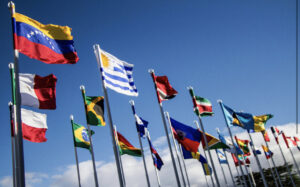
Every individual person and/ or group of people has a history and culture.
A person’s background is what shapes their mind and thought process, giving them something to have pride in. With that being said, there can be a misunderstanding of the difference between someone’s race, ethnicity, and nationality.
Race, ethnicity, and nationality are often confused for one another even though they are three different concepts and constructs.
Race refers to a person’s physical traits, like their bone structure, skin color, hair, etc. An ethnicity is a group of people with shared cultural traditions and/or nationality.
Although your nationality can denote your ethnicity, it also can differ from it. Someone’s nationality is the country they come from. A real life, applied example would be an American born, black Jamaican. This person’s race is black because they are of African descent; their ethnicity is Jamaican because of their cultural upbringing; and their nationality is American because of where they are born and claim citizenship.
This may seem like an easy concept to grasp, but is often confused — sometimes unconsciously and other times very intentionally.
Some are not aware of the difference, others are from a place where race isn’t a big deal, and some don’t want to know the difference.
Kamron Mackey, a Bahamian American, said, “You don’t think about race until you get over here. It’s not about race where I’m from, it’s about who is going to work the hardest.”
Many black people from the Caribbean islands and African continent have spoken out on various platforms to share how they feel about the masses referring to them as black or African-American instead of their ethnicity or nationality.
There seems to be a disdain toward being called “black.”
Anti-blackness is a sentiment felt across the world and diaspora. Due in part to societal conditioning, a majority of black people has struggled with their “blackness.”
Whether it is constantly claiming to be mixed with anything other than black, which is common here in the states, or completely erasing your blackness. The term black is often associated with African-Americans due to our hyper-visibility compared to others in the diaspora. However, black is simply a race describing people of African descent.
“Even though I’m Haitian I can’t shy away from my blackness,” said Stevenson Choute. “I wish us as a whole were educated on understanding race and nationality.”
This word has been given a horrible connotation that is tied to laziness. Many black people who are not descendants of chattel slavery see us (African-American descendants of slaves) as just that: lazy. And this is the furthest thing from the truth.
Americans may be riddled with entitlement, but black Americans don’t share in that lived experience. Our existence in this country as a whole can never be described as lazy and entitled. That’s just intellectually dishonest, to say the least.
We built this country and the dominant society sits high eating the fruits of our labor, then our own people come to this country and call us lazy while also eating from the fruits of our labor.
The rights that black people have in America are because African-Americans fought for them.
And this is not to say that we too have not been conditioned by society to have harmful, preconceived notions of our brothers and sisters of the diaspora.
Many Caribbeans and continental Africans tell stories of being bullied in school because of their ethnicity or nationality. One of the most notable phrases used to taunt others was “African booty-scratcher.”
Even the ideas we have of these many countries are skewed due to what we see in the media. With that being said, I believe African-Americans are essentially a landless people who are largely open to learning about other cultures in the diaspora.
Childhood bullying is something that I would hope is never used as a tool to be divisive and keep us apart. Do not judge the actions of the child; judge the actions of the adult.
“I feel that the disconnect is between the history of the Caribbean,” said Tariq Akins, “but I don’t think that we should continue to completely separate ourselves from each other being that we’re all essentially black”
The hope I have for the black community as a whole is limitless, but it starts with us all recognizing that we are black.
This doesn’t mean that there are no differences but honors and celebrates our similarities. The diaspora is literally made up of different stops on the vote. When I hear about carnival in the Caribbean islands, I see the similarities with Mardi Gras in Louisiana. When I eat joll of rice it tastes reminiscent of jambalaya.
The black community is filled with diversity, with people from all over the world. And it’s time that we embrace that and come together to understand that we are all one family.